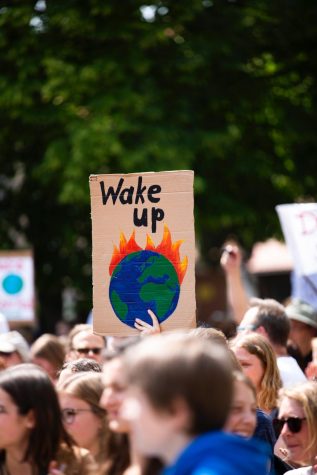What The Coronavirus Pandemic Can Teach Us About Our Environment
In the four months since COVID-19 first spread beyond China’s borders and throughout the entire world, almost everyone on the planet has been affected by the virus. With millions of individuals forced to isolate in their homes, the global economy at its lowest point in centuries, and with thousands of victims passing due to the virus each day, this pandemic has been proven to be a time of sole human connection and cooperation: everyone facing the same struggles as one another.
of sole human connection and cooperation: everyone facing the same struggles as one another.
If there was ever going to be a time where all of humanity could come together and realize their connection with one another, this would be it. As many of the simple aspects of everyone’s lives are removed, people are beginning to recognize and appreciate things they take for granted each day. With everyone throughout the world being committed to the same goal: slowing the spread of the virus, even small actions taken have had drastic results. Social distancing for example, with many states throughout the United States placing mandatory restrictions on leaving homes, has already significantly decreased the number of possible cases and limited the growth of the virus in the country.
However, this determination to restrict coronavirus can be applied to much more than just the illness itself. This global collaboration, in which everyone is taking action to achieve the same resolution, has already been proven to create substantial results extremely quickly. While the fight to stop COVID-19 is a definite priority right now, the effects of the virus are most likely to be temporary. Yet, climate change, another global emergency, is not. Many lessons and guidance can be drawn from the current health crisis in order to finally resolve the issue of the warming planet and other vital environmental issues.
One of the first conclusions that can be drawn from the coronavirus pandemic is how important science truly is. While the virus may have seemed to arrive fairly rapidly, scientists have warned for many years how if a pandemic were to arise, the country would not be prepared. However, almost all programs in place after the Ebola outbreak in 2014 have been recently dismantled, causing the government to have a lack of funds towards preparing for a pandemic such as this virus. While topics such as a global pandemic or climate change may be intimidating at first, it’s important to listen to warnings placed by science in order to fully comprehend these situations and understand its potential consequences. Although there is no guarantee that policies influenced by recent scientific discoveries could have potentially impacted the spread of the virus, the United States was left unprepared to combat such a large and highly-contagious disease.
While it may seem scary, this lack of preparation and failing systems is beginning to occur with the issue of climate change. Although there is tremendous amounts of research warning humanity about the future impacts of climate change, many people around the world still distrust science and don’t accept global warming as a reality. Many environmental protection programs and regulations, as well as scientific research, have been cut in the federal government within the past years, ignoring the daunting climate crisis. If this lack of commitment towards environmental issues continues, specifically within the next decade or two, we could begin to see the increased disastrous consequences of climate change: hotter temperatures, catastrophic storms, and rising sea levels. Without the government truly investing in scientific research and applying it towards future policies, there is no way for the US or any other place in to be prepared for or ultimately withstand the effects of climate change.
While this is a difficult time for almost everyone in the world, with social distancing, the loss of loved ones and a possible economic recession, it is important to realize how every person is fighting through this together. With everyone working towards a collective goal and empowering others to do the same, it becomes easier to acknowledge that no one is alone in their struggles amidst this or any other pandemic. This same mindset can be applied towards climate change: the only way these detrimental effects of global warming are going to be reversed is through large amounts of human collaboration. As the world is currently filled with fear for the ultimate outcome of this disease, one thing to be grateful for is the planet: with empty streets, one of the most calming things is the beauty of the natural world.
Hello! My name is Eileen Lincoln, and I am a junior here at Oakton! This is my third year in journalism but my first year as an Editor-in-Chief. I mainly...




